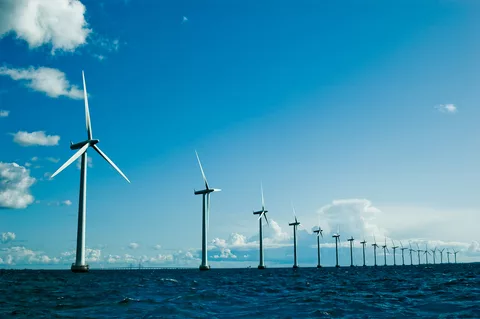Black Sea Oil & Gas (BSOG) has completed an offshore wind feasibility study of potential areas in the Romanian sector of the Black Sea. Last year, BSOG and its Midia Gas Development (MGD) partners revealed plans to use their existing MGD infrastructure to connect up to 3 GW of offshore wind to the national grid, according to Offshore Energy.
The feasibility study was carried out by the UK-based renewable energy consultancy OWC and the Romanian branch of its sibling company, ABL, which conducted a zonal appraisal and a series of technical-economic studies for BSOG as the Romanian energy company is studying the viability of potential offshore wind concession areas and its existing power export corridor and proposed reception facility.
“We are pleased to be working with OWC to more fully assess the technical potential and commercial viability of Offshore Wind Development in Romania’s Black Sea and the ability to utilise our existing Midia Gas Development (MGD) energy corridor and our existing MGD lands for reception facilities to realise up to 3GW of development for Romania,” said BSOG’s CEO Mark Beacom.
In July 2023, BSOG announced that, together with its MGD partners, Petro Ventures Resources and Gas Plus Dacia, the company started the permitting process for a power corridor in the Black Sea along its existing MGD Project infrastructure to connect future offshore wind farms to the Transelectrica national power grid (SEN).
With a designed capacity of 3 GW and 126 kilometers in length, this would be the first power corridor permitted in the Romanian Black Sea, BSOG said last year, adding that it expected the completion of regulatory procedures by mid-2024.
“MGD Project, with its existing infrastructure, lands and RoWs, is uniquely suited to provide the power corridor to serve offshore wind production and the required reception and SEN connection facilities such as substations and, if required, converters,” BSOG said in July 2023.
OWC revealed that the consultancy completed the offshore wind feasibility study for BSOG on May 8, around a month after Romania’s Offshore Wind Energy Bill was adopted. Under the new law, the Government aims to designate offshore wind energy areas and define tender procedures by mid-2025, with a plan to have Romania’s first offshore wind project built by 2032.
In February 2024, the World Bank presented draft findings of Romania’s Offshore Wind Roadmap Study, according to which up to 7 GW of offshore wind capacity could be installed in Romania by 2035.
According to the estimates from the World Bank on Romania’s technical offshore wind potential, the country has 76 GW of potential offshore wind resources to tap into, 22 GW of which is suitable for fixed-bottom wind turbines and 54 GW for floating.
